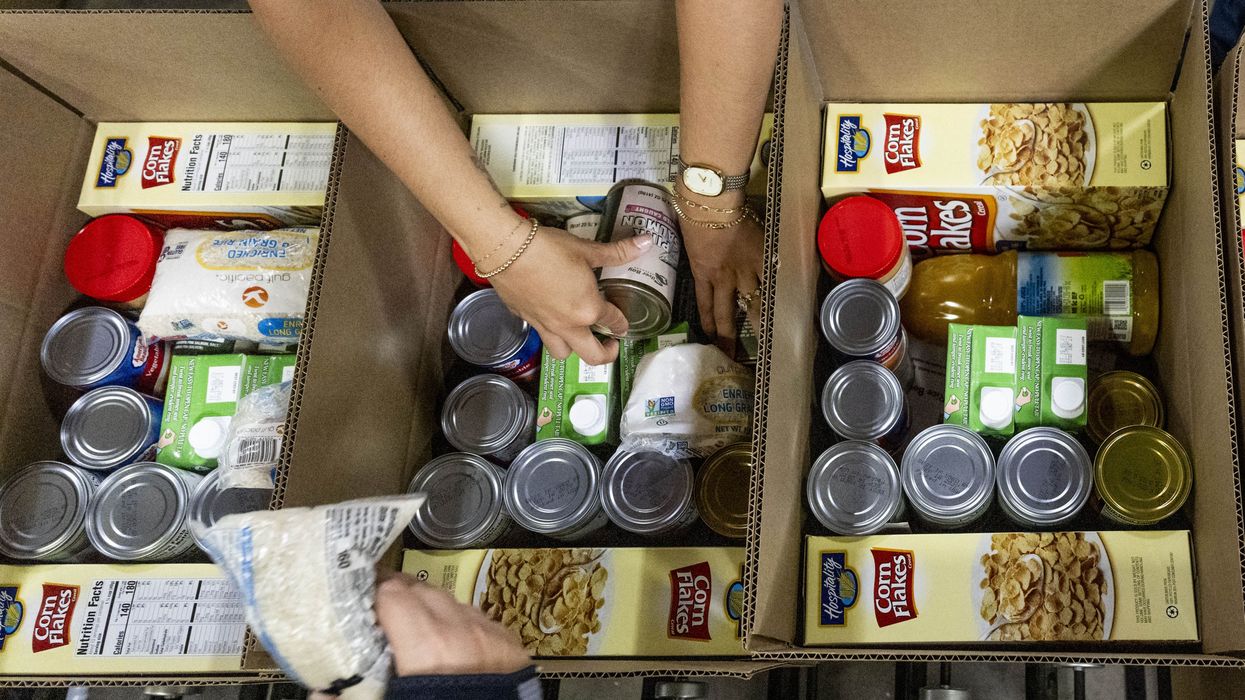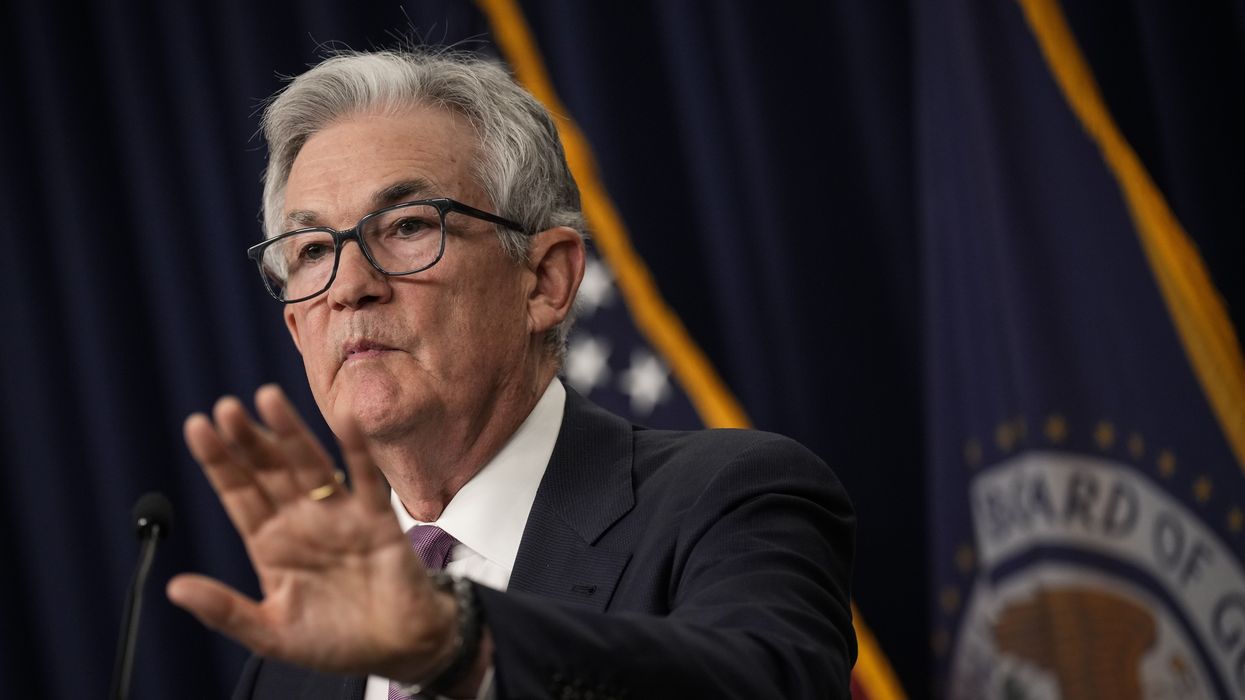Trump and His GOP Risk Making Depressions Great Again
Today, every one of the fuse lines that set off past explosions is once again being laid by a Republican president and party that have abandoned any pretense of economic stewardship or patriotism.
Republicans may be fixing to crash the economy again—Republican presidents oversaw 10 of the last 11 recessions and the Republican Great Depression—and they’re doing it to satisfy the greed of the billionaires they serve.
Today, for example, is the day that some of U.S. President Donald Trump‘s worst tariffs are supposed to go into effect, and many folks on Wall Street are deciding where they want to hide when the ceiling starts falling in. The horrible jobs report just released hours ago highlights not only how bad things were in July, but they had to “revise downward by 285,000 jobs” previous reports; it looks like Trump’s people have been cooking the books.
The Financial Times is on it; they published an article this week titled, “The US Economy Is More Fragile Than It Appears.” It’s author, Tej Parikh, points out that our housing market is in trouble and starting to look like it did around the time of the Bush Housing Crash in 2008, that spending patterns are changing in alarming ways (my phrase, not his), and that both the labor and stock markets are vulnerable. The article is frankly alarming.
And former labor secretary Robert Reich titled his brilliant newsletter yesterday: “Be Warned: The Financial Bubble Will Soon Burst.” The former Clinton cabinet member writes:
The financial economy—stocks, bonds, and their derivatives—is in for a big reality check, and I think it will happen soon.
America has stared into this abyss before; three times, in fact. In the 1770s, a brutal financial crisis driven by colonial overextension, monopolistic control by the British East India Company, and political corruption helped spark the American Revolution. In the 1850s, it was wildcat banking, land speculation, and a collapse in trust that helped produce the Panic of 1857 and push the nation toward civil war. And in 1929, Republican deregulation, tax cuts for the rich, financial speculation, and an all-out assault on labor exploded into the Republican Great Depression.
Today, every one of the fuse lines that set off those explosions is once again being laid by a Republican president and party that have abandoned any pretense of economic stewardship or patriotism.
They are actively destabilizing the pillars of our economy, undermining our democracy, and gutting the social contract that held us together for nearly a century. And unless we act—forcefully, quickly, and collectively—we may soon experience a collapse that makes 2008 look like a speed bump.
The risk of a modern economic depression is not academic or merely theoretical. It’s also not fearmongering. It is real, it is avoidable, and it is being amplified by a political movement that openly disdains regulation, despises democracy, and seeks to roll back every gain the American middle class has made since FDR dragged this country out of the last Republican-created catastrophe.
We are now living under a Republican president whose party has:
- Repeatedly held the full faith and credit of the United States hostage in debt ceiling standoffs designed to force cruel cuts to programs that serve ordinary people;
- Demanded the Fed lower interest rates in a way that could push the nation into an inflationary spiral even as wages stagnate and housing becomes unaffordable for the bottom 90%;
- Pushed for the end of regulations on banks, fossil fuel companies, tech monopolies, and Wall Street speculators, even as their recklessness increases systemic risk;
- Championed massive tax cuts for billionaires and multinational corporations, ballooning the deficit while cutting benefits and raising taxes on working people;
- Enabled trade wars and supply chain disruptions while cutting support for green manufacturing and public investment;
- Promoted and made billions from crypto; and
- Perhaps most grotesquely, embraced open authoritarianism and white nationalism, eroding the rule of law and the very stability on which economic confidence depends.
Every one of these moves destabilizes the foundation of modern prosperity. And every one of them echoes the warning signs of past collapses. The mechanisms of economic catastrophe are not mysterious. We’ve seen them before.
Start with sovereign debt and fiscal dysfunction.
In 2023 and 2024, House Republicans repeatedly brought us to the brink of default just to slash food aid, gut Medicaid, and kill green jobs. Now, in 2025, they’re salivating over a new “Balanced Budget Amendment” that would make countercyclical investment during recessions illegal. That’s economic suicide.
When demand collapses, the government must spend to stabilize the system. That’s Econ 101. But the GOP wants a permanent austerity straitjacket. Why? Because billionaires don’t suffer in recessions: They buy everything at a discount and radically increase their own wealth when things rebound. For the morbidly rich, Republican recessions and depressions are “buying opportunities”: It’s class war, plain and simple.
Then there’s financial speculation and asset bubbles.
We’re once again living in an era of rampant unregulated financial engineering:- Crypto Ponzi schemes.
- AI stock frenzies.
- Private equity gutting essential companies and loading them with debt.
- Trillions of dollars sloshing around the system chasing yield, while regulators like the Securities and Exchange Commission and Federal Trade Commission are neutered by courts stacked with right-wing ideologues.
Remember what happened in 1929? The same “let the market police itself” ideology brought the whole thing crashing down. The difference now is that the contagion would be global and could even be instantaneous.
Trade shocks and de-dollarization are looming risks, too.
Trump’s tariffs hurt American farmers and manufacturers. His talk of a new 10% universal tariff could ignite a global trade war and could push countries like China, Brazil, or Saudi Arabia to finally abandon the dollar as the reserve currency.
If that happens—if Treasury bonds stop being the world’s safe haven—we’re looking at a collapse in our ability to finance debt, a surge in interest rates, a crash in the housing market, and mass layoffs. And the Republicans? They cheer it on. They think chaos is good politics.
And then there are tariffs.
There’s a reason the Founders of this country and Framers of the Constitution gave the power to enact tariffs exclusively to Congress. They knew that nobody would build a factory here unless they knew that a tariff defending their manufacturing would be in place for the decades it would take to recover their investment costs.
When tariffs are simply slapped here and there willy-nilly by a single man and can be easily repealed by the next president, no competent business manager would take them seriously: The only thing tariffs do, under these circumstances, is damage the economy. Meanwhile, Trump’s tariffs so far are going to cost the average American family $2,400 this year.
And, from Donald Trump’s point of view, they force foreign leaders to come grovel in front of him, which absolutely delights him. He brags about it, once noting that, “They are kissing my ass.” This is not trade policy; he’s just doing this for his ego.
And what about public confidence and how the loss of it could cause a depression?
You can’t have a functioning economy without trust in government, in institutions, in money itself. But the GOP has made destroying trust its central project.
They lie about elections. They undermine the courts. They spread conspiracy theories. They smear career civil servants. They openly praise authoritarianism.
When half the population no longer believes in the legitimacy of its own government, and when the other half sees that government captured by billionaires and zealots, economic confidence evaporates.
People stop spending. They stop investing. They retreat into cash and hoarding. That’s how depressions spiral out of control.
Now layer on climate instability and its ability to wreck an economy and you have a real mess.
The GOP’s climate denialism is not just immoral, it’s economically suicidal. Hurricanes, wildfires, floods, and heatwaves are destroying billions in assets every year.
Insurance markets are collapsing in California, Florida, and Louisiana. Agricultural yields are falling. Water shortages are hitting the Southwest. Floods are wiping out the Midwest and the South while wildfires torch the West. But Republicans keep slashing climate research, killing green energy subsidies, and banning environmental and social governance investment strategies. They are literally outlawing the future.
It’s a five-alarm fire, and the Republican arsonists are demanding more gasoline.
There is, however, a way out. We’ve done it before.
They’ve created the conditions for collapse, and they’ll blame immigrants, Democrats, or queer kids when it happens.
After the last Republican-created depression, then-President Franklin D. Roosevelt rejected the dogma of austerity and implemented the most ambitious suite of Keynesian policies in world history. He put people to work. He regulated the banks. He taxed the rich. He unionized the workforce. He broke up monopolies. He guaranteed Social Security, unemployment insurance, and the right to organize.
That system—Keynesian demand-side economics—created the greatest middle class the world has ever seen. It lifted millions out of poverty, stabilized capitalism, and gave rise to the postwar economic boom. It literally created the modern American middle class.
But starting in 1981, Reagan and the GOP declared war on that system. They gutted antitrust enforcement. They slashed top tax rates. They crushed unions. They deregulated finance. They privatized public goods. They shifted the burden of funding government from the rich to the working class. And then they blamed the victims of their policies for the resulting inequality and instability.
Now they’re going for the kill shot.
Trump and his Republican Party are not just misguided; they are dangerous. Their policies are not just bad; they are existential threats to economic stability. They’ve created the conditions for collapse, and they’ll blame immigrants, Democrats, or queer kids when it happens.
We can’t let them. We have to take our country back, economically, politically, morally.
That means rejecting trickle-down nonsense and restoring Keynesian demand-side policies. It means breaking up monopolies and rebuilding a regulatory state that works. It means bringing back progressive taxation and closing loopholes for billionaires. It means massive investment in clean energy, public health, education, and infrastructure. It means rebuilding trust in democracy by reversing Citizens United, defending voting rights, rooting out corruption, and calling out fascism where we see it.
This must be at the core of the platform Democrats run on this fall and during next year’s midterms.
The risk of a depression is real. But the solution is in our hands. We just have to stop letting the Republican Party light the matches.


